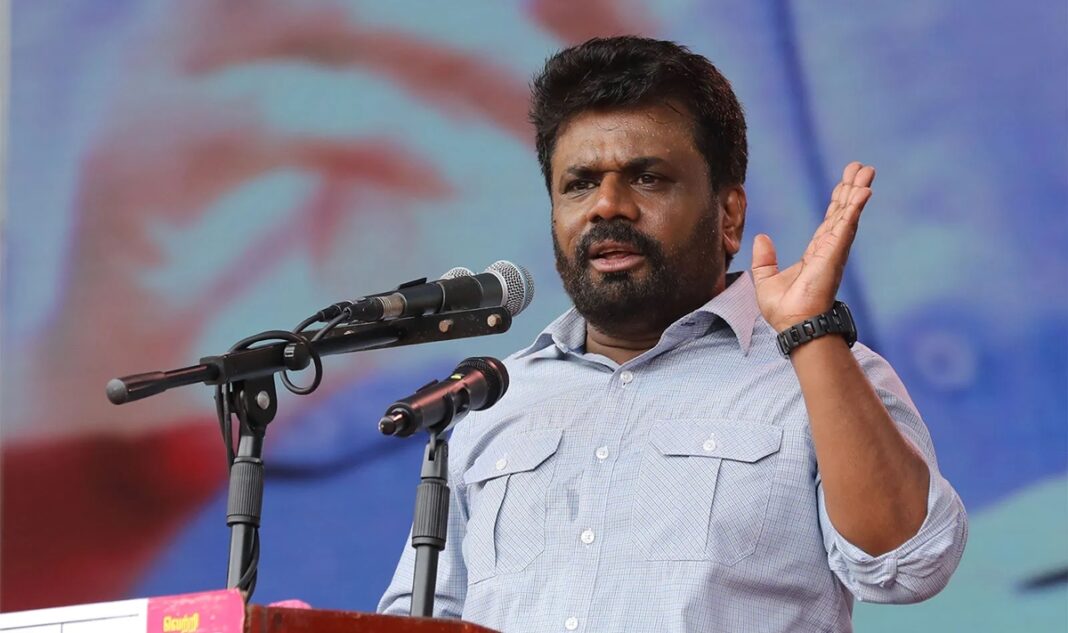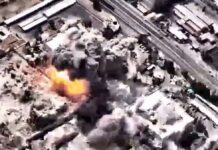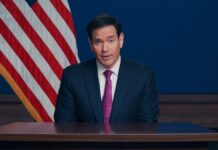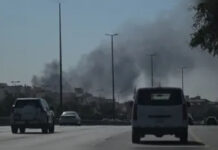X: @prashanthamine
New Delhi: The election of 55-year-old Dissanayaka Mudiyanselage Anura Kumara Dissanayake, or Anura Kumara Dissanayake for short, or better known by his acronym AKD, as the 10th President of Sri Lanka has presented itself as a knotty problem more for the United States of America (USA), than for India.
The US and most of its western allies had been pinning their hopes on a victory either for past president Ranil Wickremesinghe, Sajith Premadasa, Namal Rajapaksa or even for former army general Sarath Fonseka. Anura Kumara Dissanayake was not even considered in the contest and ranked fourth by the US and its allies.
His election seems to have outwitted most of the election observers and experts alike who were hoping for either Ranil Wickremesinghe to retain the presidency or Sajith Premadasa to win the September 21 presidential elections in Sri Lanka. In the end Wickremesinghe, Fonseka and Rajapaksa were thrown out of the race and it became a two-way contest between Premadasa and Dissanayake.
Part of that perception was borne out of the fact that in the 2019 Sri Lankan presidential elections Anura Kumara Dissanayake had polled just 3% of the votes. This time it was a complete reversal with Dissanayake polling 42.31% of votes. However, neither did Premadasa who came second with 32.76% votes, managed to poll required 50% preferential votes to win the presidency.
The poll result was a tight-slap for all those who were rooting for the pro-West leaning candidates. Little did anyone notice that the Sri Lankan people were fed up with the economic crisis since it unfolded in March 2022 that led to the ouster of former president Gotabaya Rajapaksa.
The people were rooting for the Left leaning, Marxist, Anura Kumara Dissanayake who had pitched himself as pro-poor and anti-corruption crusader. Before his election, AKD had favoured renegotiating the $4 billion assistance from the International Monetary Fund (IMF), arguing that its terms and conditions were somewhat unjust.
Although Anura Kumara Dissanayake began his political career from his student days with the Left leaning Janatha Vimukthi Peramuna (JVP) which is part of the National Peoples Power (NPP) alliance, now seems to have charted a middle path of diplomacy.
Following his victory, Dissanayake has been calling for a fresh start and unity of Sinhalese, Tamils, Muslims and all Sri Lankans calling it as a bedrock of a new beginning. He expressed optimism that a new Sri Lanka would rise from this shared strength and vision, and a fresh start to realise the country’s aspirations.
India had been playing cautiously, maintaining a neutral stance in the run-up to the presidential elections. The Government of India had hosted Dissanayake early in February this year in New Delhi. His remarks that he will not allow any one country to use its waters, land or airspace against India, may ally some concerns in New Delhi. However, his intentions to relook at the Adani group’s wind power project in north-eastern Sri Lanka is bound to raise concerns again in New Delhi.
Another long-standing unresolved issue of 37 years is the implementation of the 1987, 13th Amendment to the Sri Lankan constitution that followed the Indo-Sri Lankan Peace Accord signed by former Sri Lankan president J R Jayawardene and late Indian prime minister Rajiv Gandhi in Colombo in July 1987.
The JVP had led a bloody anti-India rebellion against the Indo-Sri Lankan Peace Accord. It remains to be seen as to what stance does Dissanayake take on its implementation after having termed it against the interest of Sri Lanka and after having given a call for national unity to Sinhalese, Tamils, Muslims and all Sri Lankans to overcome the economic difficulties facing Sri Lanka.








where to get clomid tablets cost of clomiphene clomiphene only cycle buy cheap clomid price how to get cheap clomiphene no prescription clomid price where can i get generic clomid
More posts like this would bring about the blogosphere more useful.
With thanks. Loads of erudition!
buy rybelsus paypal – order semaglutide 14 mg online cheap order cyproheptadine online
buy domperidone without prescription – tetracycline over the counter order flexeril online cheap
buy augmentin without a prescription – at bio info order ampicillin generic
buy nexium pills – nexiumtous buy nexium 20mg pill
buy generic warfarin – anticoagulant buy losartan 25mg
purchase mobic generic – swelling buy mobic sale
buy prednisone 10mg sale – aprep lson prednisone for sale
amoxil uk – amoxil tablets amoxicillin online buy
purchase diflucan pill – forcan over the counter diflucan online order
cenforce online order – https://cenforcers.com/ order cenforce 50mg pill
cialis 100mg review – https://ciltadgn.com/ what is the generic name for cialis
generic ranitidine – aranitidine buy ranitidine for sale
100 mg viagra cost – https://strongvpls.com/ buy viagra hyderabad india
Thanks an eye to sharing. It’s top quality. comprar doxycycline
This is a question which is virtually to my fundamentals… Numberless thanks! Faithfully where can I find the acquaintance details in the course of questions? https://buyfastonl.com/
With thanks. Loads of conception! https://ursxdol.com/synthroid-available-online/
This is the big-hearted of scribble literary works I truly appreciate. https://prohnrg.com/product/acyclovir-pills/
I’ll certainly carry back to review more. https://aranitidine.com/fr/en_ligne_kamagra/
Thanks towards putting this up. It’s understandably done. https://ondactone.com/simvastatin/
This is the kind of scribble literary works I positively appreciate.
https://doxycyclinege.com/pro/dutasteride/
More peace pieces like this would make the web better. https://ozmacsolutions.com.au/?URL=https://doselect.com/@decab16353abf074be022fa5f
The vividness in this serving is exceptional. http://anja.pf-control.de/Musik-Wellness/member.php?action=profile&uid=4703
buy dapagliflozin 10mg online cheap – order forxiga 10mg buy dapagliflozin 10mg
purchase orlistat – order orlistat order orlistat 60mg pill
This is the tolerant of advise I turn up helpful. https://lzdsxxb.com/home.php?mod=space&uid=5112300
You can conserve yourself and your ancestors by way of being wary when buying medicine online. Some druggist’s websites control legally and offer convenience, solitariness, sell for savings and safeguards over the extent of purchasing medicines. buy in TerbinaPharmacy https://terbinafines.com/product/norvasc.html norvasc
I am in fact enchant‚e ‘ to gleam at this blog posts which consists of tons of worthwhile facts, thanks towards providing such data. TerbinaPharmacy
The thoroughness in this break down is noteworthy.
Với giao diện mượt mà và ưu đãi hấp dẫn, MM88 là lựa chọn lý tưởng cho các tín đồ giải trí trực tuyến.
betmgm NJ betmgm-play betmgm OR
Experience the emotions of a live casino. In crowncoins casino, roulette, blackjack, and much more are available. Become part of the elite players!
Sweet Bonanza brings the party to your screen with vibrant graphics and high-reward gameplay. Land sweet bonanza gameplay scatters, activate bombs, watch your balance grow. The fun never stops!
Witness the majesty of buffalos delivering epic wins. buffalo slots real money stacks the deck with 1024 paylines, sunset triggers, and progressive gold pots. Roar to victory!
No deposit, no problem — chumba slots gives you free Sweeps Coins to start winning. Enjoy top-tier games and real cash prize potential. Sign up free!
Play today, brag tomorrow. stake sports makes winning look easy.